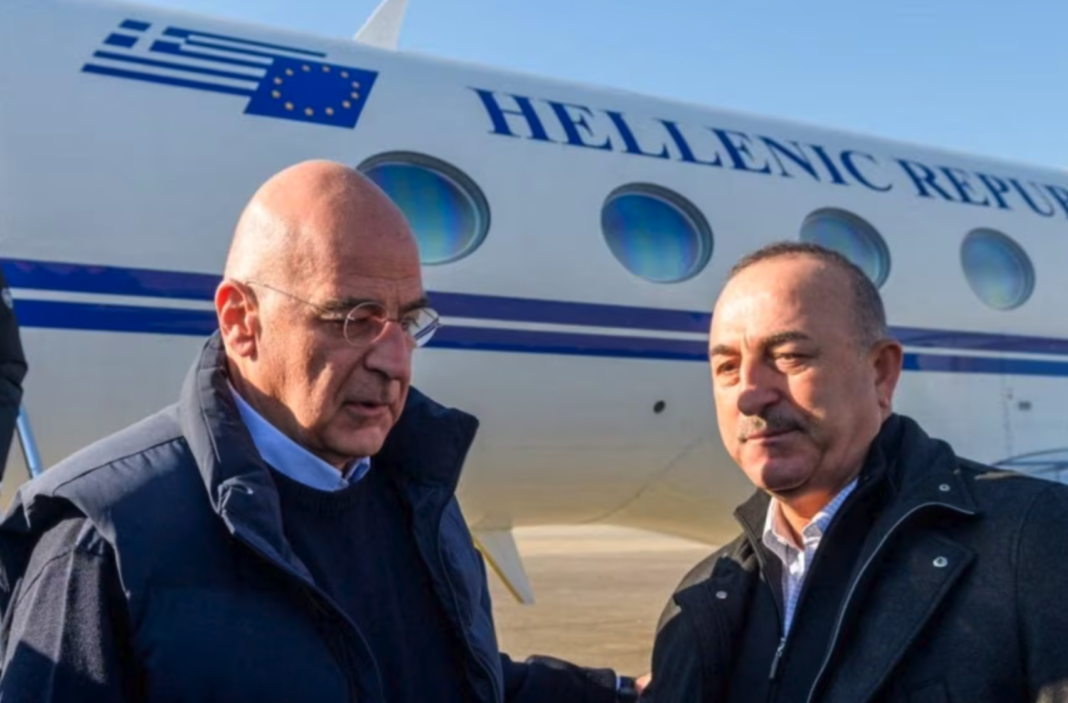Greece and Turkey have decided to support each other in the UN’s Security Council and the International Maritime Organisation, respectively, in what is described as a “new era” in their bilateral relations following years of turmoil that has intensified in recent months. Sarantis Michalopoulos reports in Euractiv on March 21, 2023.
Greek Foreign Minister Nikos Dendias and his Turkish counterpart Mevlüt Çavuşoğlu agreed on Monday in Brussels to support Athens’ candidacy for the position of non-permanent member of the Security Council in 2025-26 and Ankara’s bid for the General Secretariat of the International Maritime Organisation (IMO).
The move was described by Greek media as the result of a “new era” of relations between the two countries, which have been intense for months with almost zero communication channels.
However, things started changing after a shocking earthquake in Turkey and the solidarity shown by Athens.
For its part, Turkey decided to allow the extradition of the father of one of the victims of the recent deadly train accident in Tempi, who was serving a sentence in a Turkish prison.
Greek news website in.gr reported that the political atmosphere between the two countries has changed and that both want to maintain the informal “moratorium of calmness”.
Regarding Greece’s candidacy for the UN Security Council, Turkey, its close allies and Russia were considered potential threats to block it. With this deal, sources in Athens now believe that one of the two main obstacles was surmounted.
The elections gamble
Both countries will hold elections later this year, and their ruling parties face difficulties in getting re-elected.
In Ankara, President Recep Tayyip Erdoğan is trailing behind his primary opponent, Kemal Kılıçdaroğlu, who leads the centre-left CHP party and the centrist multiparty Millet İttifakı electoral alliance, ahead of the 14 May presidential elections.
Kılıçdaroğlu is currently leading with approximately 56% of the vote, while Erdoğan is trailing with only 44%, the Europe Elects polling average found.
In Athens, the deadly train crash had a huge political cost for the ruling New Democracy party (EPP).
According to the latest polls, Mitsotakis is in a neck-and-neck race with Syriza leader (EU Left) Alexis Tsipras.
Lastly, rumours in Athens suggest that Dendias is eyeing the leadership of New Democracy in case Mitsotakis is defeated in the upcoming elections, likely to be held in May.
Several media reported that Dendias has, on purpose, abstained from the ongoing debate over the train accident to avoid being affected by the political damage the government is currently suffering.

